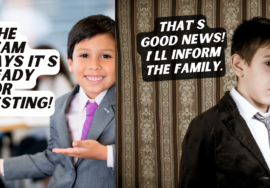
Social Media Platforms Exploit and Manipulate the most Vulnerable People in Society, Teenagers and Children.
What are we doing to keep children safe online?
Social media has become a powerful tool for communication and connection in the modern world. However, lawsuits have been filed over the negative impact of social media on young people. Will social media companies be held accountable for using unprecedented technologies to entice, engage, and ensnare youth and teens or will they pay a few fines (as they do regularly) and it’s business as usual.
There is a growing concern about the impact of social media platforms on teenagers and children. Many experts argue that these platforms can be harmful to vulnerable individuals, particularly young people who are still developing their sense of identity and self-worth. One of the main concerns is that social media platforms can be used to exploit and manipulate vulnerable individuals.
One of the ways in which social media companies do this is by creating addictive features that keep users hooked. Notifications, likes, and other forms of feedback are designed to trigger a dopamine response in the brain, which leads to addiction-like behavior. This is particularly concerning for teens and children, whose brains are still developing and are more vulnerable to addiction.
Another way in which social media companies ensnare youth and teens is through algorithms that prioritize content that is likely to keep users engaged. This can lead to a “filter bubble” effect, where users are only exposed to content that reinforces their existing beliefs and biases. This can be particularly harmful for youth who are still developing their worldview and may be more susceptible to misinformation.
Additionally, social media platforms can be used to spread misinformation and fake news, which can be particularly harmful to vulnerable individuals who may not have the critical thinking skills to discern fact from fiction.
Studies have shown that excessive social media use can lead to feelings of anxiety, depression, and loneliness, particularly among young people.







